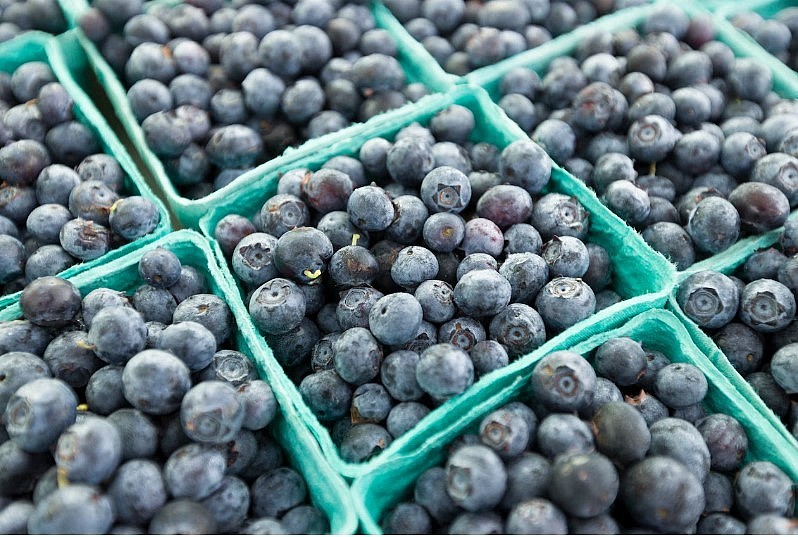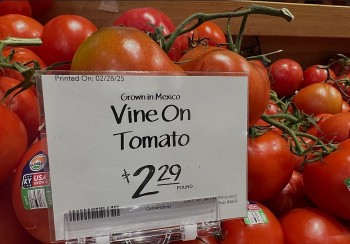Recall Alert: Organic Blueberries May Harbor Dangerous Listeria Strain
On July 1, the U.S. Food and Drug Administration elevated the recall to a Class I, the most severe category, indicating a reasonable probability that consuming the fruit could result in serious illness or death.
The berries, identified by lot numbers 13325 G1060 and 13325 G1096, were shipped exclusively to a single customer in North Carolina. This confined distribution both limits and complicates the scope of risk and responsibility.
 |
| Alma Pak International LLC is recalling 400 boxes of its 30 pound blueberry products |
Organic Produce Isn’t Immune: Cold‑Chain Blind Spots Exposed
Many consumers assume “organic” equals “safer,” especially when it comes to fresh fruit. Unfortunately, this recall highlights inherent vulnerabilities in organic cold-chain logistics.
Listeria monocytogenes thrives in low temperatures—between 0 and 4 °C—that are typically lethal for other foodborne pathogens. Cold environments like refrigerated storage and transport actually slow bacterial die-off and help maintain viability.
Conventional fruit packing often relies on chlorine washes and aggressive sanitizers. Organic operations, which avoid such chemicals, must substitute alternative methods like UV or ozone treatments, natural biocide sprays, and stringent surface controls. If any link is weak—from field washing to packaging machinery—Listeria can establish a foothold, persist, and magnify during storage and distribution.
Distribution Anomaly: A Single North Carolina Recipient
Shipping all 400 boxes to one North Carolina buyer raises unique questions around traceability, liability, and exposure.
The FDA lists the North Carolina recipient as the sole shipping destination. On the surface, this could imply limited exposure. But if that recipient distributed the fruit further—through food service, restaurants, or supermarkets—the contamination footprint may be much broader.
The concentration of shipping also shifts potential legal accountability. Instead of a dispersed chain of retailers, claims may center on this single buyer, spotlighting contract specifics, insurance clauses, and supply agreements.
Genetic Tracking: What We Don’t Know
Whole Genome Sequencing (WGS) and the CDC’s PulseNet system are industry gold standards in tracking Listeria outbreaks. The blueberry recall triggered when routine testing flagged the pathogen, presumably backed by genetic subtyping. Yet, publicly available FDA updates omit strain-specific data.
In 2024, WGS was pivotal in tracing a Listeria outbreak linked to Boar’s Head deli meat—60 hospitalizations and 10 fatalities—underscoring the power of data-driven detection.
The absence of detailed genomic data for the blueberry recall leaves unanswered whether this strain connects to previous outbreaks—such as those in leafy greens or other fruit. If it does, linking them could uncover systemic contamination or processing vulnerabilities across different fresh produce environments.
Climate Amplification: Condensation as a Hidden Catalyst
Emerging data shows that summer 2025 brought significant humidity fluctuations in key berry-growing regions, creating conditions ripe for microbial survival and proliferation.
When field temperatures drop abruptly into cold storage, condensation accumulates inside transport and packing units. Research indicates that even brief exposure—48 hours at 4–8 °C in high humidity—can double Listeria counts on produce .
Organic facilities, lacking the buffer of chemical sanitizers, must upgrade environmental monitoring systems—including humidity sensors, thermography studies, and strict condensation control protocols—to ensure vigilance where bacteria love to hide.
Public Health Risks: Who’s Most Vulnerable
Listeria monocytogenes causes listeriosis, which can start with mild gastrointestinal symptoms but progress to life-threatening conditions, especially for high-risk populations: pregnant individuals, older adults, and immunocompromised persons .
Symptoms may include fever, muscle aches, nausea, vomiting, and diarrhea. In severe cases, Listeria can invade the bloodstream or central nervous system, causing septicemia, meningitis, or miscarriages at critical stages of pregnancy.
Because symptoms often resemble common infections, many cases go unrecognized—meaning contamination could lead to underreported illness.
Consumer Action Tips: What to Do Now
If you have blueberries from this recall, check the lot numbers 13325 G1060 and 13325 G1096. Dispose of or return them to the purchase point. Refrain from consuming them, and consult a medical provider if symptoms arise.
Consumers should also:
-
Freeze or cook berries to reduce bacterial load when uncertain
-
Stay alert to FDA and CDC notifications
-
Pass along recall info to at-risk friends and family
These aren’t just berries—they’re potential hazards that demand caution.
Implications for Small and Medium Producers
Small-scale organic growers often contract with packers like Alma Pak. This recall shows they need more than just organic certification to ensure safety.
Key strategic upgrades include:
-
Digital traceability systems (RFID, blockchain) for end-to-end batch tracking
-
Cold-chain validation tools like continuous thermal and humidity monitoring
-
Pre-shipment WGS sampling to detect contamination early
-
Environmental risk modeling that incorporates weather forecasts and microbial behavior
Without these investments, reputational damage or regulatory action following recalls can devastate small or emerging producers.
Accountability and Transparency Expectations
The Class I label reflects a dire risk, yet the FDA’s public communication on this recall lacks granular detail—especially genetic strain data and distribution maps.
Public trust depends on enhanced transparency:
-
Open sourcing of WGS data for independent analysis
-
Detailed timeline mapping: packing, shipping, storage, tracing distribution
-
Real-time alert systems (emails, text messages) tailored to regional outbreaks
In the absence of these measures, consumers can only guess whether the problem is isolated or indicative of broader risks in the organic fruit industry.
The Bigger Trend: Rising Severity in Fresh Produce Recalls
Food recall activity surged in 2024, with around 300 incidents causing roughly 1,400 illnesses and 487 hospitalizations—double the numbers from 2023.
Several trends are converging:
-
Listeria’s resilience in cold temperatures coupled with condensation
-
Wider adoption of WGS revealing more contamination events
-
Increasing scale of organic supply networks without matched hygiene upgrades
If infrastructure doesn’t adapt—especially in humidity control, traceability, or sanitation innovation—Class I recalls in fresh produce may become distressingly common.
What It Means for Consumers and Industry
Consumers should no longer equate “organic” with “safe.” The assumption that natural equates to better hygiene is dangerous—especially when dealing with pathogens that thrive in cold, wet environments.
Processors, growers, and regulators must:
-
Embrace genetic surveillance (WGS/PulseNet) as standard in fresh produce testing
-
Invest in humidity control and biofilm prevention during cold storage
-
Share genomic and distribution data transparently to build trust
-
Support small growers in digital traceability and proactive hygiene validation
The blueberry recall is more than just another food safety event. It’s a turning point, illuminating hidden vulnerabilities in supply chains, especially for organic produce marketed as “safe” and “natural.”
Final Analysis
This recall should catalyze change. From field to shelf, we need active vigilance—not assumptions. Better sanitation, smarter tracking, humidity management, and transparency aren’t just ideal—they’re imperative.
Because in every box of berries lies a lesson: food safety is invisible until disaster strikes. And prevention is always better than reaction.
 75,000 Bottles of International Delight Creamer Recalled: Full List of Affected States 75,000 Bottles of International Delight Creamer Recalled: Full List of Affected States FDA Issues Nationwide Recall Due to Spoilage and Illness Concerns! |
 Full List of States Where Vine-Ripe Tomatoes Were Recalled Over Salmonella Risk Full List of States Where Vine-Ripe Tomatoes Were Recalled Over Salmonella Risk Ray & Mascari Inc., an Indianapolis-based produce distributor, has issued a voluntary nationwide recall of its “4-Count Vine Ripe Tomatoes” due to potential Salmonella contamination. |
 Vietti Recalls Baked Beans in 23 States Due to Undeclared Soy – Full Recall List Vietti Recalls Baked Beans in 23 States Due to Undeclared Soy – Full Recall List Consumers with soy allergies at risk; over 4,500 cases of Yellowstone Brown Sugar Molasses Baked Beans affected. |























